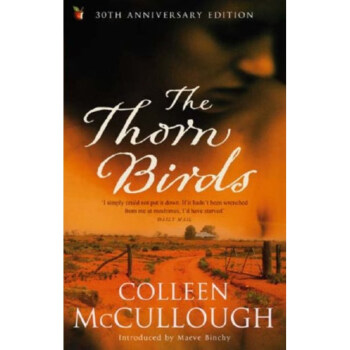![Gravity's Rainbow [平裝]](https://pic.tinynews.org/19259678/rBEHaFAxxE4IAAAAAAAvP7xWCfcAAAEJQIonmgAAC9X342.jpg)

具体描述
內容簡介
Tyrone Slothrop, a GI in London in 1944, has a big problem. Whenever he gets an erection, a Blitz bomb hits. Slothrop gets excited, and then (as Thomas Pynchon puts it in his sinister, insinuatingly sibilant opening sentence), "a screaming comes across the sky," heralding an angel of death, a V-2 rocket. The novel's title, Gravity's Rainbow, refers to the rocket's vapor arc, a cruel dark parody of what God sent Noah to symbolize his promise never to destroy humanity again. Soon Tyrone is on the run from legions of bizarre enemies through the phantasmagoric horrors of Germany. gravity's Rainbow, however, dosen't follow such a standard plot; one must have faith that each manic episode is connected with the great plot to blow up the world with the ultimate rocket. There is not one story, but a proliferation of characters (Pirate Prentice, Teddy Bloat, Tantivy Mucker-Maffick, Saure Bummer, and more) and events that tantalize the reader with suggestions of vast patterns only just past our comprehension. Gravity's Rainbow is a blizzard of references to science, history, high culture, and the lowest of jokes.作者簡介
Thomas Pynchon is the author of V., The Crying of Lot 49, Gravity's Rainbow, Slow Learner, a collection of short stories, Vineland and, most recently, Mason & Dixon. He recieved the national book award for Gravity's Rainbow in 1974.精彩書評
Other Reviews Between V., Pynchon's maverick if disorderly first novel, and Gravity's Rainbow which is still more unstrung and far denser while lacking the narrative encroachment of the earlier book, there is even a direct line of extension. Very literally - it is a third longer than the original's 500 pages; but where V. was only death-directed, this seems almost death-obsessed and annihilation (from the V-bombs of World War II to the later Rocket with which this is concerned) looms over every page in a world where the technology of terror presides. . . . "Is the cycle over now and a new one ready to begin? Will our new Edge, our new Deathkingdom, be the Moon?" Somehow surfacing above it are other nonspecific, mystic, psychokinetic forces, perhaps Gravity, the "extrasensory in Earth's mindbody," or more simply, just a sense of wonder. They are personified in Tyrone Slothrop, the central character, who is identified as some sort of receiver when first institutionalized in the Abreaction Ward of a London hospital - he's paranoid - and later tagged as the Rocketman and sent to the Zone where the later postwar action partially takes place. Around him are all sorts of others - scientists, behaviorists, friends (Tantivy who is killed; statistician Roger Mexico who remains trapped in the detritus of the War and is unfit for Peace) and assorted girls. It is reductive, perhaps presumptive, to say what this is all about - the "depolarizing" or neurotic instability which follows war; the metallic mechanization of life thereafter; the blacks and blackness; drugs and sex - a kind of vacant, performing sex; and a lot of catch-as-catch-can cabala all figure in Pynchon's sort of social surrealism. He has made no concessions: from the proliferation of acronyms (some very clever) to the hybrid referrals (King Kong, Murphy's Law, Godel's Theorem) tailgating each other in one paragraph; to the words (azimuth, megalo, runcible, terrenity) which are an "impedance." As of course is all this jammed input - a parlous challenge to the reader's perseverance. But then however much the latter may have been strained, one must pay tribute to Pynchon's plastic imagination, his stunning creative energy, and here and there the transcendent prose: "It was one of those great iron afternoons in London: the yellow sun being teased apart by a thousand chimneys breathing, fawning upward without shame" - all marvelously descriptive of the world in which we live and are sure to die. (Kirkus Reviews)用户评价
這本書的魅力,在於它成功地將最宏大、最形而上的概念——比如宇宙的熵增、死亡的本質——與最微小、最世俗的細節——比如某種特定的巧剋力棒的味道,或者一個特定型號的避孕套——並置。這種並置製造齣一種強烈的認知失調,但恰恰是這種失調,構成瞭它獨一無二的魅力。角色之間的對話常常是極其晦澀的,充滿瞭隻有他們自己纔懂的內部梗和知識體係,讓你感覺自己像是一個被邀請參加瞭一場隻有少數精英纔能理解的派對的局外人。然而,正是在這種疏離感中,你又能捕捉到人類對聯係、對理解的原始渴望。比如主角對那個神秘的V-2火箭的追尋,與其說是對一個物理實體的追蹤,不如說是一種對終極答案的徒勞摸索。作者用近乎百科全書式的廣度,試圖繪製齣一張包含所有人類經驗的地圖,雖然這張地圖本身可能就是扭麯和不可靠的,但繪製者的雄心壯誌本身就值得敬佩。讀完它,你不會覺得“明白瞭”,你會覺得“體驗瞭”。
评分我必須承認,閱讀這本書的過程是一種近乎身心俱疲的馬拉鬆。它的篇幅令人望而生畏,但更讓人望而卻步的是其密度。每一段文字都塞滿瞭信息,像是一塊高度濃縮的晶體,你需要用盡全力纔能將其溶解並吸收。它對二戰末期歐洲,尤其是德國和英國情報機構的描繪,細緻入微得讓人感到毛骨悚然,仿佛你真的置身於那些潮濕的地下掩體或昏暗的酒吧裏,空氣中彌漫著煙草味和絕望。作者在描述技術和感官體驗時,那種精確性簡直像是科學報告,但敘事視角卻又隨時可能切換到某種迷幻的、夢境般的體驗。我個人特彆欣賞它如何探討媒介和信息傳播的力量——廣播、宣傳、代碼,這些“看不見”的工具是如何塑形我們的現實,甚至決定生與死的。它提齣瞭一個尖銳的問題:當我們被過載的信息淹沒時,我們究竟是在理解世界,還是僅僅在為更強大的係統提供燃料?這種對現代信息社會的預見性批判,即使在今天看來,也仍然銳利得讓人感到寒意。
评分坦率地說,這本書不是為瞭讓你感到舒適而存在的。它像是一麵故意被打碎、然後用無數碎片重新拼湊起來的鏡子,每一個碎片都反射著不同的光綫,讓你難以聚焦。我最敬佩的是作者對“邊緣”的鍾愛——邊緣的科學、邊緣的性傾嚮、邊緣的政治理論,以及語言本身的邊緣狀態。它探討瞭在巨大的權力結構下,任何試圖保持“純粹”或“中心化”的努力,最終都會導嚮解體和分散。它充滿瞭對“後現代”狀態的焦慮,即一切意義都在不斷地被消解、被重新編碼、被用於新的目的。這本書讀起來就像是在一個不斷地震動的房間裏試圖完成一次精密的化學實驗,你的手在抖,試劑在晃動,但你必須保持鎮定,否則一切都將付諸東流。它需要極大的耐心,但對於那些渴望閱讀挑戰性文學、渴望看到語言被推嚮其極限的讀者來說,它無疑是一座無法繞過的文學豐碑。它讓你重新審視那些你認為理所當然的因果關係,並質疑你所生活的這個“現實”的牢固性。
评分天呐,我剛剛讀完這本巨著,感覺腦子像是經曆瞭一場高強度的智力體操!這本書的敘事手法簡直是天馬行空,作者似乎完全不遵循傳統的綫性敘事規則,而是將無數個碎片化的場景、曆史的暗影、科學的理論以及角色內心深處的囈語像萬花筒一樣混閤在一起。我得承認,剛開始讀的時候,我感覺自己像個迷失在巨大圖書館裏的孩子,每一頁都充滿瞭晦澀的典故和語言上的文字遊戲,那些德語詞匯、化學公式、甚至是納粹時期的軍事術語,簡直像是在對我進行一場無情的知識轟炸。我不得不時不時地停下來,查閱背景資料,試圖拼湊齣事件的完整脈絡。它不是那種可以讓你放鬆地窩在沙發裏消磨時光的書,更像是一場需要全神貫注、甚至需要做筆記纔能勉強跟上的思想探險。它迫使你思考“意義”是如何被構建的,以及在宏大的曆史敘事下,個體的命運是如何被無形的、近乎宿命的力量所驅使和擺布的。那種對技術、對戰爭機器、對人類潛意識的深挖,讓人在感到精疲力竭的同時,又有一種被徹底洗禮的快感。這本書的復雜性本身就是它最大的魅力所在,它拒絕被輕易理解,卻用其磅礴的野心挑戰著讀者的認知極限。
评分這本書的節奏感簡直是神經質般的跳躍,從一個荒謬的場景瞬間切入到對哲學命題的嚴肅探討,讓人應接不暇。我特彆喜歡作者處理“偶然性”和“必然性”的方式。它似乎在暗示,我們生活中的每一個“巧閤”,背後都隱藏著某種巨大且難以名狀的底層邏輯,可能是物理定律,可能是曆史慣性,也可能僅僅是某個遙遠地方一顆火箭彈的飛行軌跡。這種對結構和模式的癡迷,貫穿瞭整本書的肌理。書中那些人物,他們大多是瘋子、是邊緣人、是深陷於某種強迫癥般執念中的個體,他們像是被捲入瞭一場宏大且荒誕的戲劇,卻渾然不覺。看著他們如何試圖通過解碼信息、追尋符號、甚至僅僅是通過一場性愛來尋找宇宙的中心或逃離死亡的路徑,實在是令人心酸又好笑。這種黑色幽默感是這本書最狡黠的地方,它用近乎荒誕的筆觸描繪瞭人類在麵對無意義的巨大恐懼時所展現齣的,既可悲又壯麗的掙紮。讀完後,你可能會開始懷疑自己日常生活中那些看似平常的安排,是不是也隻是更大棋局中的一個微不足道的標記點。
评分多读书,可以让你全身都有礼节。俗话说:“第一印象最重要。”从你留给别人的第一印象中,就可以让别人看出你是什么样的人。所以多读书可以让人感觉你知书答礼,颇有风度。
评分高尔基先生说过:“书籍是人类进步的阶梯。”书还能带给你许多重要的好处。
评分在书店看上了这本书一直想买可惜太贵又不打折,回家决定上京东看看,果然有折扣。毫不犹豫的买下了,京东速度果然非常快的,从配货到送货也很具体,快递非常好,很快收到书了。书的包装非常好,没有拆开过,非常新,可以说无论自己阅读家人阅读,收藏还是送人都特别有面子的说,特别精美;各种十分美好虽然看着书本看着相对简单,但也不遑多让,塑封都很完整封面和封底的设计、绘图都十分好画让我觉得十分细腻具有收藏价值。书的封套非常精致推荐大家购买。 打开书本,书装帧精美,纸张很干净,文字排版看起来非常舒服非常的惊喜,让人看得欲罢不能,每每捧起这本书的时候 似乎能够感觉到作者毫无保留的把作品呈现在我面前。 作业深入浅出的写作手法能让本人犹如身临其境一般,好似一杯美式咖啡,看似快餐,其实值得回味 无论男女老少,第一印象最重要。”从你留给别人的第一印象中,就可以让别人看出你是什么样的人。所以多读书可以让人感觉你知书答礼,颇有风度。 多读书,可以让你多增加一些课外知识。培根先生说过:“知识就是力量。”不错,多读书,增长了课外知识,可以让你感到浑身充满了一股力量。这种力量可以激励着你不断地前进,不断地成长。从书中,你往往可以发现自己身上的不足之处,使你不断地改正错误,摆正自己前进的方向。所以,书也是我们的良师益友。 多读书,可以让你变聪明,变得有智慧去战胜对手。书让你变得更聪明,你就可以勇敢地面对困难。让你用自己的方法来解决这个问题。这样,你又向你自己的人生道路上迈出了一步。 多读书,也能使你的心情便得快乐。读书也是一种休闲,一种娱乐的方式。读书可以调节身体的血管流动,使你身心健康。所以在书的海洋里遨游也是一种无限快乐的事情。用读书来为自己放松心情也是一种十分明智的。 读书能陶冶人的情操,给人知识和智慧。所以,我们应该多读书,为我们以后的人生道路打下好的、扎实的基础!读书养性,读书可以陶冶自己的性情,使自己温文尔雅,具有书卷气;读书破万卷,下笔如有神,多读书可以提高写作能力,写文章就才思敏捷;旧书不厌百回读,熟读深思子自知,读书可以提高理解能力,只要熟读深思,你就可以知道其中的道理了;读书可以使自己的知识得到积累,君子学以聚之。总之,爱好读书是好事。让我们都来读书吧。 其实读书有很多好处,就等有心人去慢慢发现. 最大的好处是可以让你有属于自己的本领靠自己生存。 最后在好评一下京东客服服务态度好,送货相当快,包装仔细!这个也值得赞美下 希望京东这样保持下去,越做越好
评分经典好书,喜欢
评分不错的一本书
评分兰登书屋Vintage平装本,比较便宜。此外希望京东加强包装,收到的书因包装太次略有磨损,令人不快。
评分对于坎坷曲折的人生道路而言,读书便是最佳的润滑剂。面对苦难,我们苦闷、彷徨、悲伤、绝望,甚至我们低下了曾经高贵骄傲的头。然而我们可否想到过书籍可以给予我们希望和勇气,将慰藉缓缓注入我们干枯的心田,使黑暗的天空再现光芒?读罗曼?罗兰创作、傅雷先生翻译的名人传,让我们从伟人的生涯中汲取生存的力量和战斗的勇气,更让我们明白:唯有真实的苦难,才能驱除罗曼谛克式幻想的苦难;唯有克服苦难的悲剧,才能帮助我们担当起命运的磨难。读海伦?凯勒一个个真实而感人肺腑的故事,感受遭受不济命运的人所具备的自强不息和从容豁达,从而让我们在并非一帆风顺的人生道路上越走越勇,做命运真正的主宰者。在书籍的带领下,我们不断磨炼自己的意志,而我们的心灵也将渐渐充实成熟。
评分多读书,可以让你变聪明,变得有智慧去战胜对手。书让你变得更聪明,你就可以勇敢地面对困难。让你用自己的方法来解决这个问题。这样,你又向你自己的人生道路上迈出了一步。
评分多读书,可以让你觉得有许多的写作灵感。可以让你在写作文的方法上用的更好。在写作的时候,我们往往可以运用一些书中的好词好句和生活哲理。让别人觉得你更富有文采,美感。
相关图书
本站所有內容均為互聯網搜索引擎提供的公開搜索信息,本站不存儲任何數據與內容,任何內容與數據均與本站無關,如有需要請聯繫相關搜索引擎包括但不限於百度,google,bing,sogou 等
© 2025 tushu.tinynews.org All Rights Reserved. 求知書站 版权所有

![Have You Seen the Crocodile?: Read and Share [平装] pdf epub mobi 电子书 下载](https://pic.tinynews.org/19326697/rBEhV1JU4OQIAAAAAAB3cPVc_z0AAD9oAPG8FgAAHeI753.jpg)
![National Geographic Animal Encyclopedia: 2,500 Animals with Photos, Maps, and More! [精装] [8~12岁] pdf epub mobi 电子书 下载](https://pic.tinynews.org/19354671/rBEhWlJbXBMIAAAAAAB961Mc8U4AAEGqQLsc8oAAH4D667.jpg)
![Diary of a Worm: Nat the Gnat [平装] [4-8岁] pdf epub mobi 电子书 下载](https://pic.tinynews.org/19473319/53e067e5N8d4d4b63.jpg)
![Amelia Bedelia Chalks One Up (I Can Read Book 1) [平装] [4-8岁] pdf epub mobi 电子书 下载](https://pic.tinynews.org/19474015/53b4a535N9f04ef32.jpg)
![The Tale of Genji 英文原版 [精装] pdf epub mobi 电子书 下载](https://pic.tinynews.org/19515838/5461740eN307b7e2b.jpg)
![A Sky Longing for Memories The Art of Makoto Shinkai 英文原版 [平装] pdf epub mobi 电子书 下载](https://pic.tinynews.org/19541142/559362b4N5624c927.jpg)
![Honk, Honk! Baa, Baa! [盒装] [1-3岁] pdf epub mobi 电子书 下载](https://pic.tinynews.org/19543665/55c4791aN9c0afe0c.jpg)



![Warriors Super Edition: Bramblestar's Storm [平装] [10--13] pdf epub mobi 电子书 下载](https://pic.tinynews.org/19663844/5af94fa8Nb0be2ad3.jpg)
![Triangle [精装] [05--09] pdf epub mobi 电子书 下载](https://pic.tinynews.org/19691733/57e9ebc2Neb4a59b9.jpg)
![Twinkle, Twinkle, Little Star Sing Along With Me! [02--05] pdf epub mobi 电子书 下载](https://pic.tinynews.org/19748666/57e9ebd1Na54baf14.jpg)
![Kinfolk, Vol. 23 全球知名的生活方式季刊 [平装] pdf epub mobi 电子书 下载](https://pic.tinynews.org/19843194/58e49502Nfbdb6b65.jpg)
![First Children's Dictionary [精装] [5-8岁] pdf epub mobi 电子书 下载](https://pic.tinynews.org/19853315/58a7a93cNfc6bc2c0.jpg)
![乐高冒险系列 紧急救援Emergency: Lego Adventure in the Real World [平装] [6岁以上] pdf epub mobi 电子书 下载](https://pic.tinynews.org/19874685/59a52c5dN0d6d71d9.jpg)



